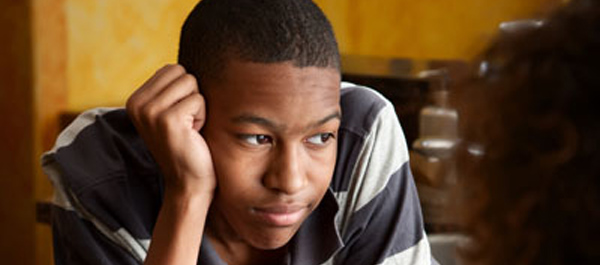Undoubtedly, the challenges our nation has seen over the past few weeks and months is reaching a fever pitch. In many ways, the outrage about the circumstances of unjustified police violence has always simmered at local levels and, sometimes, boiled over into national attention.
The recent killings of Alton Sterling, Philando Castile and the officers in Dallas and Baton Rouge have left the country looking for answers as to why our people are brutalized, in front of cameras, yet there is no justice in most of the situations.
While we work to come up with solutions, how do we talk to our children who are seeing these images and formulating their own assessment of police officers and how to interact with them. We have to encourage our children and here are three ways we can control the narrative to help them:

Most Police Officers Are Genuinely Trying to Do Their Job
I got a speeding ticket about eight years ago, and the officer had the worst attitude of any officer I have ever met. I was polite, knew I was speeding, and I didn’t give him any problem. It was the first and only encounter where an officer was going beyond what he was called to do with me.
I saw another officer at work the next day and several of us were discussing the police. I shared what happened and he told me, “It’s like any job. Some people are good at what they do, some take advantage of situations and some are not very good at all. Like any job, most people are genuine, and there are a few who don’t do their jobs well.”
He was right.
There are thousands of traffic stops every day, and the majority are warranted and handled the way they should be, regardless of race. Children should be taught officers have a tough job, and we should do what we can to make their job as easy and safe as possible, so we are able to get home safely and have the right kinds of interactions with officers. Children should meet officers early in their lives and learn not to be afraid and how to talk to officers through those interactions.
Your Child Doesn’t Have to Drive Around Fearful
If you watch news cycles every day and listen to what’s happening in our country, it’s easy to grow fearful. We can pass that fear along to our children if we aren’t careful.
It’s not healthy for children to have a spirit of fear. Fear will permeate into other facets of their lives. We want them to be confident, courageous and intelligent people. Equip your child with the tools they need to avoid situations that cause police interactions as much as possible.
That said, it’s likely your child will eventually have some interaction with officers, so it’s important to know how to interact. Teach them how to interact appropriately and to follow directions to the letter during every interaction. Getting home safely has to be your child’s goal during those interactions.
The Next Generation is Going to Affect More Change. Do Your Part
Dallas Police Chief David Brown said there are positions within the police department. “Come work for the P.D. and become a part of the change.”
I agree with the sentiment in theory, but the application is flawed. Many police departments already have significant black and Latino populations within their forces. How much are they influencing the change with officers that do not have the right mindset?
Whether you enroll in the police academy or not, I think the next generation of adults will likely do more to change mindsets than the current generation. There is an undeniable undercurrent that some white officers are scared or intimidated by black men. The Washington Post published an analysis stating black Americans are 2.5 times more likely as whites to be killed by officers.
If you can affect the change of mindset inside the P.D., please answer the calling. If you can affect change by organizing community groups, which work with police, follow that call. Whatever our next generation can do to work side by side with those who are sworn to protect us, let’s encourage them to help drive a safer America for them and the generations to come.
BMWK, what else can we do to help build a safer, more harmonious America?


Leave a Reply